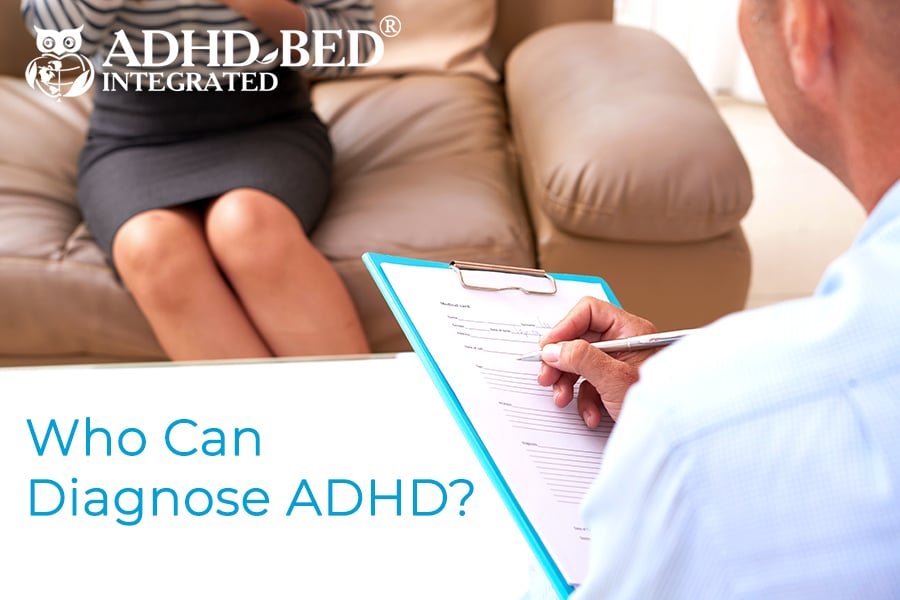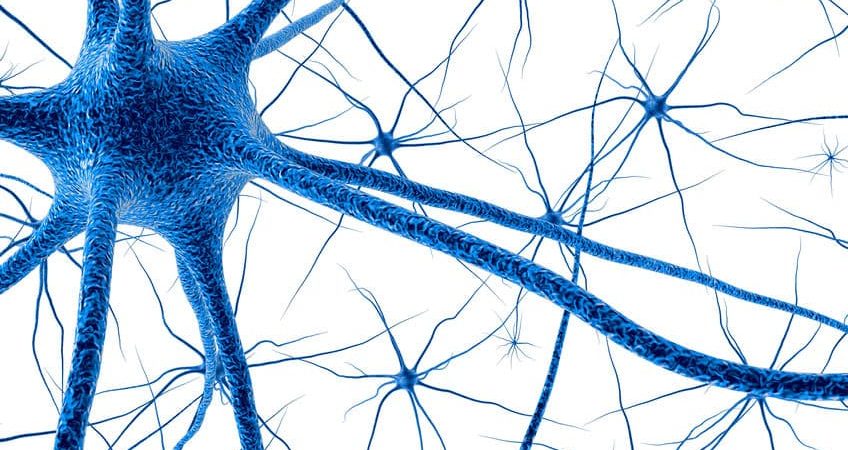Table of Contents
Introduction
Attention Deficit Hyperactivity Disorder (ADHD) is the most common neurodevelopmental disorder, manifesting in symptoms of inattention, hyperactivity or impulsivity. It is a disorder which begins in childhood, and may persist into adulthood if undiagnosed or untreated. ADHD often goes undiagnosed, as symptoms of inattention are not as easily identified. An accurate and reliable ADHD diagnosis by an appropriate healthcare provider is crucially important, so that patients are not misdiagnosed. This article will outline the diagnostic procedures for ADHD in children and adults, the specific medical or mental health professionals who can carry out these diagnostic processes, as well as their respective advantages and disadvantages.
Importance of Diagnosing ADHD
While ADHD is a highly prevalent disorder, it is highly misunderstood. This is evident through the high rates of misdiagnosis or undiagnosed ADHD. For example, studies have found that there is a tendency for ADHD to be over-assessed in younger boys and under-assessed in older girls.
If ADHD goes untreated due to such inaccuracies in diagnosis, there can be substantial negative repercussions towards a person’s life, affecting their ability to carry out daily tasks, their mental wellbeing and the relationships with the people around them.
Thus, it is important that the diagnostic procedures of ADHD are appropriately applied and adhered to by experienced mental health professionals, in order to produce a valid and reliable diagnosis.
Who is Qualified to Diagnose ADHD?
Most people who are seeking ADHD testing and diagnostic confirmation, count on both medications and psychological treatment/coaching. It is strongly advisable to check the regulations for ADHD testing and diagnosis in the respective country, to make the ADHD testing process time- and cost-efficient.
For example, in most countries a diagnosis of ADHD made by a psychologist or a neuropsychologist is not sufficient, to access treatment with medications, however the person may be able to access psychological treatments already.
In Australia general practitioners can make a provisional (tentative) diagnosis of ADHD and initiate certain ADHD medications on their own, without an input from a psychiatrist. A formal ADHD testing and a diagnosis from a psychiatrist will be still required, to access a full range of treatment.
In some European countries, e.g. UK, France, Germany, and Australia the diagnosis must be made by a psychiatrist, in order to access medications and other supports, e.g. financial allowance via certain programs. Family doctor and psychologist can then take over the treatment and continue on with the recommendations from a psychiatrist.
In the United States ADHD can be tested and confirmed by a GP/family doctor as well as by a psychiatrist, and the treatment is initiated by the same doctor who made the diagnosis.
Professionals Who Can Diagnose ADHD: The Pros and Cons
Your Family Doctor – General Practitioners (GP) & Pediatricians
Your family doctor (i.e., a general practitioner or pediatrician), is typically the first line of healthcare providers to approach when it comes to addressing your concerns about any symptoms related to ADHD. GPs and pediatricians are able to administer provisional testing for ADHD using scales and questionnaires. In some countries, certain ADHD medications can be prescribed by GPs. GPs and pediatricians can also provide referrals to specialists like psychologists and psychiatrists.
Advantages:
- More easily accessible
- Shorter wait times for a GP appointment
- They are able to prescribe certain medications without formal input from a psychiatrist
Disadvantages:
- Limited medications can be prescribed for treatment
- Cannot provide non-medication treatment like counseling or behavioural therapy
Psychiatrists
Psychiatrists are specialist doctors who are experienced and clinically trained in diagnosing and treating mental disorders. Psychiatrists are able to formally provide a full diagnostic assessment for ADHD, which involves a thorough evaluation of a patient’s background, life circumstance and their presenting symptoms, alongside an analysis of results from diagnostic questionnaires and scales.
Advantages:
- Can prescribe medications for treatment
- Psychiatric assessments are thorough and take into account many differential factors (i.e., biological and environmental factors) to form a diagnosis.
Disadvantages:
- Costly consultation fees
- Longer wait times due to high demand
Psychologists and Neuropsychologists
Psychologist ADHD testing may occur through an evaluation of a patient’s childhood background, life circumstances, their presenting symptoms and the results from diagnostic questionnaires and scales. Similarly, neuropsychologists can also diagnose ADHD using these procedures. However, neuropsychologists are trained specifically on brain structure and function, and how abnormalities to brain structure may affect cognition and behaviour. Thus, a neuropsychologist’s assessment of ADHD may be more specific towards how neurological deficits in executive functioning may lead to a diagnosis of ADHD.
Advantages:
- Can provide psychological treatment (e.g., cognitive behavioural therapy, ADHD coaching, etc.)
Disadvantages:
- Cannot prescribe any medication
- Costly consultation fees
Licensed Therapists and Counselors
Therapists and counselors can provide ADHD diagnoses by assessing a patient’s childhood background, life circumstance, relevant presenting symptoms and results from ADHD diagnostic questionnaires and scales. A therapist or counselor’s approach to diagnosing and treating ADHD may be more focused on addressing behaviour through counselling/therapy methods like ADHD coaching or support groups.
Advantages:
- Can provide psychological treatment (e.g., cognitive behavioural therapy, ADHD coaching, etc.)
Disadvantages:
- Cannot prescribe any medication
Tips on Choosing the Right Specialist
Every individual is different, especially with their lived experiences of ADHD. Thus, the pathway one may choose to take in their diagnosis and treatment journey may differ depending on the specific outcomes that they may desire. Evidently, it is important for patients of ADHD to choose the right specialist that is most suited to support them throughout their diagnosis and treatment journey, as each specialist will be able to provide different diagnostic outcomes and treatment options.
Here are some tips that can help with making the right choice of specialist:
- Do some research on ADHD and how it’s diagnosed beforehand, so that you have a rough understanding of the options that are available to you and you can begin to establish boundaries and preferences.
- Have an open conversation with loved ones about getting a diagnosis and what happens after. Oftentimes, loved ones can provide valuable advice and support when considering your options and making a decision.
- Be open minded. Different providers have varying methods of diagnosis and treatment. It may be worthwhile to be open to listen and understand the options that they can offer for you.
How to Approach a Doctor about ADHD
Before approaching a doctor for clinical advice regarding ADHD, it is worthwhile to do some research and understand the basics of what it means to have ADHD. Research on ADHD has been abundant over the last few years – information about the disorder has become very easily accessible online, via infographics or even self-report questionnaires. Try to apply this knowledge to your own experiences, and identify whether the symptoms of ADHD can be applied to you. If you find that they do, and if you find that these symptoms have been negatively affecting your ability to function normally in everyday life, it might be helpful to seek professional advice.
The easiest and most common method of approaching a doctor about ADHD is through your family doctor or GP. With the high prevalence of ADHD and increasing diagnosis rates, it is not uncommon that your doctor is approached by patients with concerns for ADHD. With your doctor, have an open and honest conservation about these symptoms and how they are affecting your life. Your doctor may ask questions about your childhood and current lifestyle. This involves the basic diagnostic assessment procedures for ADHD. Depending on their opinion, your doctor may also refer you to a specialist like a psychiatrist or clinical psychologist for further assessment.
FAQ
Who can prescribe medications for ADHD treatment?
This depends on the country of practice.
In Australia general practitioners can initiate certain ADHD medications on their own, without an input from a psychiatrist. A formal ADHD testing and a diagnosis from a psychiatrist will be still required, to access a full range of treatment.
In some European countries, e.g. UK, France and Germany, the diagnosis must be made by a psychiatrist, in order to access medications and other supports, e.g. financial allowance via certain programs. Family doctors and psychologists can then take over the treatment and continue on with the recommendations from a psychiatrist.
In the United States ADHD can be tested and confirmed by a GP/family doctor as well as by a psychiatrist, and the treatment is initiated by the same doctor who made the diagnosis.
Can a neurologist diagnose ADHD?
Not exactly. Neurologists are specialists doctors who are trained in managing the diagnosis and treatment of neurological disorders, which are disorders of the nervous system (i.e., brain, spinal cord and nerves). Hence, neurologists are better equipped to treat and diagnose neurological disorders like epilepsy and Parkinson’s disease.
While ADHD has strong neurological underpinnings, a diagnosis of ADHD would more likely involve evaluation of behavioural and psychological symptoms.
However, it is possible that neurologists can assist with the treatment of ADHD, as they may be able to address the deficits within neurological functioning that are associated with ADHD.
What will happen if ADHD is not diagnosed?
It is not uncommon that ADHD goes undiagnosed. In fact, many people grow up not knowing that they have ADHD and only realise this in adulthood. Some people don’t find out at all. In these cases, these individuals probably learned and developed strategies or coping mechanisms that helped them overcome the difficulties stemming from their undiagnosed ADHD.
However, not everyone experiences the same. Undiagnosed ADHD would prevent ADHD patients from getting the right treatment. If untreated, these patients will lead a life of inattentiveness and impulsiveness, which can negatively impact their daily lives. This could mean difficult workplace experiences and unfulfilling relationships with family, friends and peers. Moreover, having ADHD poses a high risk of developing other psychiatric conditions like depression, anxiety and alcohol use disorder. If left unaddressed, ADHD and its comorbidities will further complicate the symptoms of ADHD and make it even more difficult to resolve.
Conclusions
From GPs and pediatricians, to psychologists and psychiatrists, there are many different healthcare professionals that are able to diagnose ADHD. Choosing the right doctor involves understanding the various diagnostic pathways and treatment options that each one may offer, as well as considering factors like time- and cost-efficiency. Most importantly, however, choosing a doctor that is most suited for you ultimately means that you are taking the right steps towards attaining a better quality of life.
References
- Furzer, J., Dhuey, E., & Laporte, A. (2022). ADHD misdiagnosis: Causes and mitigators. Health Economics, 31(9), 1926-1953. doi.org/10.1002/hec.4555
- American Psychiatric Association. (2022). Diagnostic and statistical manual of mental disorders (5th ed., text rev.). doi.org/10.1176/appi.books.9780890425787
- Diagnosis of ADHD in adults. CHADD. (2018, May 24). Retrieved October 21, 2022, from https://chadd.org/for-adults/diagnosis-of-adhd-in-adults/
- https://familytalksclinic.com.au/who-can-diagnose-adhd-in-australia/
- https://www.viennapsychologicalgroup.com/how-do-neuropsychologists-diagnose-adhd/



